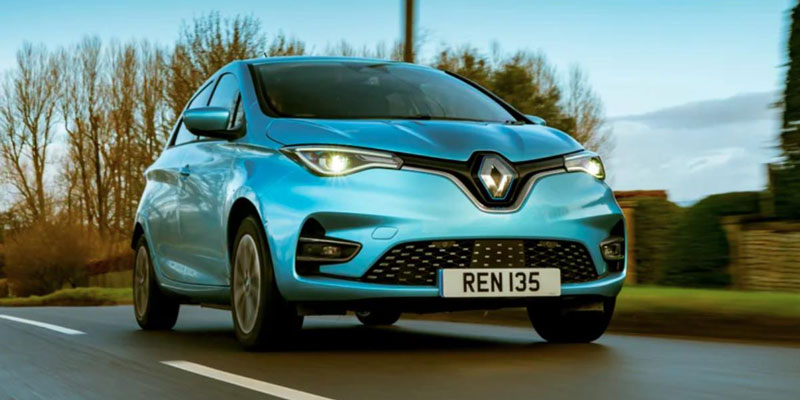In the quest for purchasing a new car, many individuals find themselves weighing the options for financing that dream vehicle. Dealer financing emerges as a compelling choice, offering a convenient, though often misunderstood, pathway to car ownership. This financing method entails obtaining a loan directly from the dealership, bypassing the traditional bank loan route. Despite its appeal, potential buyers should approach dealer financing with a well-informed perspective, understanding not only its convenience but also the complexities that lie beneath its surface. This article aims to unravel the intricacies of dealer financing, presenting a clear view of its structure, benefits, and potential pitfalls.
Understanding Dealer Financing
Dealer financing can often appear as a simple and straightforward path to buying a car, but it encompasses several elements that borrowers should be aware of. This section will explore how dealer financing works, including the roles of the dealership and financial institutions in the process, and the way in which deals are structured.
Process and Parties Involved
The dealer plays a pivotal role in the financing process, acting as an intermediary between the buyer and the financiertypically a bank or an automotive finance company. This arrangement allows dealerships to offer buyers a range of financing options through various lenders. The dealer collects information from the buyer and forwards it to their partnered financial institutions, who then decide on the loan's approval based on the buyer's creditworthiness. It's crucial for buyers to understand that while dealers facilitate the financing, they are not the ones extending the credit.
Structure of Deals
Once a financing option is approved, the structure of the deal comes into play. This encompasses several key components, including the loan's interest rate, term length, and monthly payment amounts. Dealers often have leeway to mark up the interest rate provided by the lender, which can lead to higher costs for the buyer. Hence, it is vital for consumers to negotiate the terms of their financing deals or seek pre-approval from banks or credit unions before heading to the dealership. Understanding these elements and the flexibility that may exist within them can empower buyers to secure more favorable financing terms.
The Pros and Cons
Just like any financial decision, opting for dealer financing comes with its own set of advantages and drawbacks.
Pros of Dealer Financing
- Convenience: Dealer financing streamlines the car-buying process, allowing customers to purchase a vehicle and secure financing all in one place.
- Multiple Financing Options: Dealerships often have relationships with a variety of lenders, providing buyers with a range of financing choices suited to their credit profiles.
- Promotional Financing Rates: Dealers sometimes offer special financing rates, including lower interest rates that may not be available through traditional banking channels.
- Flexibility in Negotiation: With dealer financing, there may be room for negotiation on the terms of the loan, such as the interest rate, down payment, and duration of the loan.
- Speed and Efficiency: The process can be quicker than securing a loan through a bank, with approvals sometimes happening on the spot, enabling immediate possession of the vehicle.
Cons of Dealer Financing
- Higher Interest Rates: As mentioned earlier, dealerships may markup interest rates provided by the lender, resulting in higher costs for the buyer.
- Possibility of Predatory Practices: Some unscrupulous dealers may engage in predatory practices such as charging unnecessary fees or adding unwanted insurance products to the loan, leading to inflated costs for the borrower.
- Limited Flexibility: While there may be room for negotiation, the terms of dealer financing are ultimately controlled by the lender, limiting buyers' options.
- Credit Score Impact: Applying for dealer financing often involves multiple credit inquiries, which can negatively impact a borrower's credit score.
Applying for Dealer Financing
Applying for dealer financing requires a strategic approach to ensure the best possible terms and protect one's financial interests. Heres a simplified breakdown of the process involved:
Pre-Application Research
- Understand Your Credit Score: Prior to stepping into a dealership, check your credit score. This knowledge gives you leverage in negotiating the interest rates.
- Research Market Rates: Know the current market interest rates for car loans, so you can distinguish between a good deal and a marked-up offer.
The Application Process
- Gathering Necessary Documents: Prepare all required documents, including identification, proof of income, proof of residence, and insurance details.
- Filling out the Application: Complete the financing application provided by the dealer. This may be done in person at the dealership or online, if available.
Negotiation and Approval
- Discussing Terms: Once the application is submitted, you'll have the opportunity to discuss loan terms. Use this time to negotiate the interest rate, loan period, and monthly payment.
- Approval and Finalization: If the loan is approved, review the contract carefully before signing. Make sure all terms match what was negotiated.
Dealer Financing vs. Bank Loans
When comparing dealer financing to bank loans, it's crucial to understand the key differences that might affect a buyer's decision. Dealer financing, while convenient, tends to offer a quick and seamless process, allowing buyers to finance and purchase their vehicle in one location. This option often comes with a variety of lender choices and the potential for promotional rates.
However, the interest rates might be higher due to dealer markups, and there's a risk of encountering predatory practices. On the other hand, bank loans can provide more competitive interest rates and a clearer, more straightforward loan agreement. Securing financing from a bank before shopping can also give buyers a stronger negotiating position at the dealership.
Yet, this route lacks the convenience and immediate approval that dealer financing might offer. Ultimately, the choice between dealer financing and bank loans hinges on a buyer's priorities regarding convenience, interest rates, and negotiating power.
Navigating Interest Rates
Interest rates are arguably one of the most crucial factors to consider when securing financing for a vehicle. They can significantly impact the overall cost of ownership and monthly payments. It's essential to understand that while dealers may offer promotional interest rates, these might not be the best options in the long run as they can come with hidden costs.
Conclusion
While dealer financing offers a highly convenient and potentially expedited path to car ownership, it is accompanied by considerations that warrant careful scrutiny. Understanding the advantages such as convenience, a variety of financing options, and sometimes advantageous promotional rates, against the drawbacks like potentially higher interest rates and the risk of predatory practices, is critical. Equipped with knowledge about one's credit score, prevailing market interest rates, and the specifics of both dealer financing and bank loans, buyers can make informed decisions that align with their financial situations and priorities.




